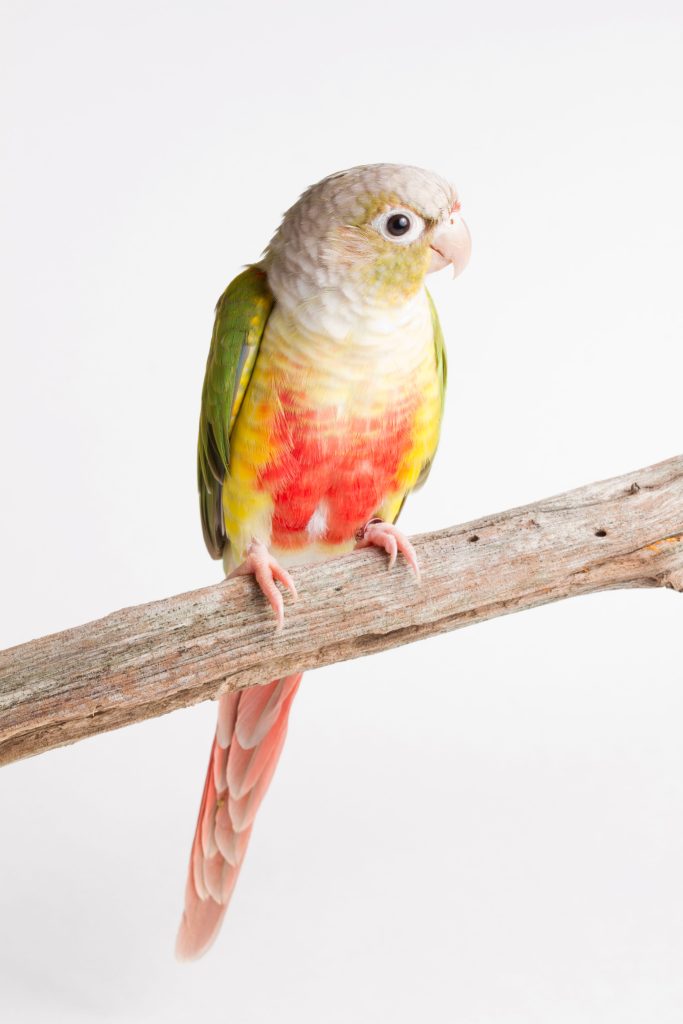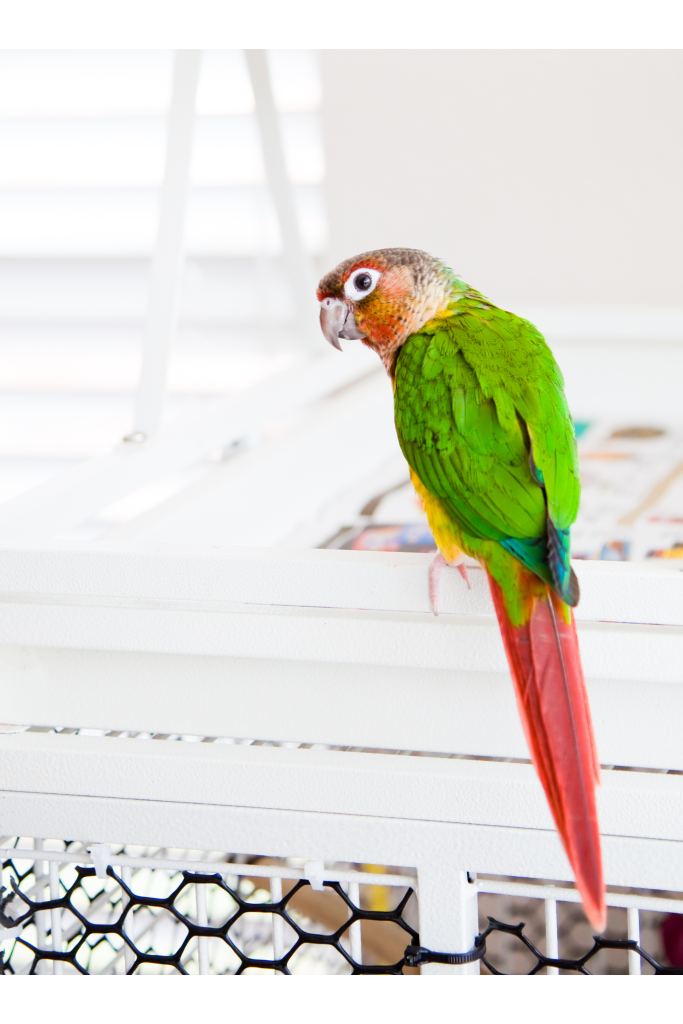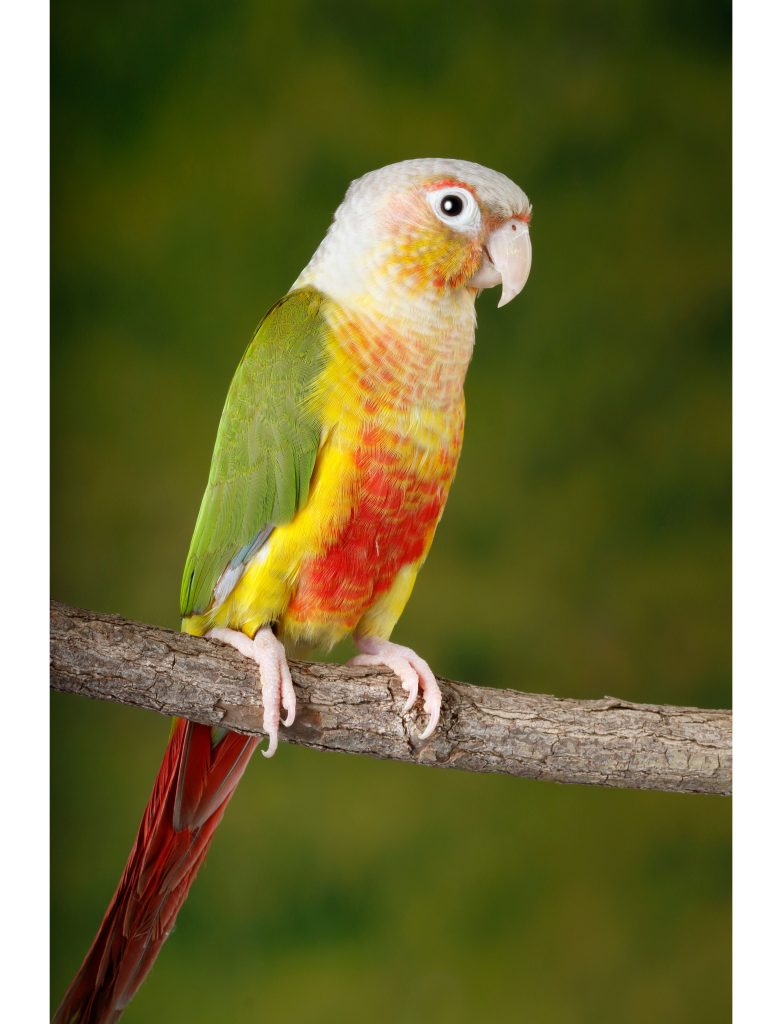Introduction
Pineapple Green Cheek Conures are delightful and charming birds that have captured the hearts of bird enthusiasts around the world. With their vibrant colors, playful personalities, and intelligence, these feathered companions make wonderful pets for both novice and experienced bird owners alike. In this comprehensive guide, we will delve into the fascinating world of Pineapple Green Cheek Conures, covering everything from their origins and physical characteristics to their care requirements and behavior. So, let’s embark on an exciting journey to discover all there is to know about these captivating avian companions.
Table of Contents

What are Pineapple Green Cheek Conures?
Pineapple Green Cheek Conures, scientifically known as Pyrrhura molinae, are small parrots native to South America, specifically found in the forests of Brazil, Bolivia, and Argentina. They belong to the family Psittacidae, which includes parrots, macaws, and cockatoos. These charming birds are beloved for their striking appearance, characterized by vibrant green plumage adorned with splashes of yellow and orange, resembling the colors of a ripe pineapple, hence the name “Pineapple Green Cheek Conure.”
Physical Appearance
- Pineapple Green Cheek Conures exhibit a predominantly green plumage, with shades ranging from olive to emerald.
- They have bright orange feathers on their cheeks, which contrast beautifully with their green body.
- Their wings may display splashes of yellow, red, or blue, adding to their visual appeal.
- On average, these conures measure around 10 inches in length, making them a compact and manageable size for pet owners.
Unique Traits and Personalities
- Pineapple Green Cheek Conures are known for their playful and affectionate nature, forming strong bonds with their human companions.
- They are highly intelligent birds and thrive on mental stimulation, enjoying toys, puzzles, and interactive games.
- These conures are also excellent mimics and can learn to mimic human speech and sounds with proper training.
- Despite their small size, they possess a big personality, often displaying comical antics and playful behaviors.
Housing and Cage Setup
Proper housing and cage setup are essential for providing a safe and comfortable environment for Pineapple Green Cheek Conures to thrive. Here are some guidelines to consider when setting up a habitat for your feathered friend:
Cage Selection
- Choose a spacious cage that allows ample room for your conure to move around and stretch its wings.
- Opt for a cage made of sturdy materials such as stainless steel or wrought iron to ensure durability.
- Ensure that the spacing between the bars is appropriate to prevent escape or injury.
Cage Accessories
- Provide a variety of perches of different thickness and textures to promote foot health and exercise.
- Include toys, swings, and climbing structures to keep your conure mentally stimulated and entertained.
- Place food and water dishes in accessible locations within the cage, ensuring they are kept clean and replenished daily.
Location and Environment
- Place the cage in a quiet and draft-free area of your home, away from direct sunlight and household hazards.
- Maintain a comfortable ambient temperature between 65-80°F (18-27°C) to ensure your conure’s well-being.
- Avoid placing the cage near air vents, windows, or doors where temperature fluctuations may occur.
Diet and Nutrition
A balanced diet is crucial for the health and longevity of Pineapple Green Cheek Conures. Here’s a breakdown of their dietary requirements and nutritional needs:
Basic Diet
- Offer a high-quality commercial pellet diet specifically formulated for small parrots, supplemented with fresh fruits and vegetables.
- Include a variety of fruits such as apples, grapes, bananas, and berries, as well as vegetables like carrots, broccoli, and leafy greens.
- Limit the intake of seeds and nuts, as they are high in fat and should be given in moderation to prevent obesity and nutritional imbalances.
Treats and Supplements
- Provide occasional treats such as whole grains, cooked eggs, and small amounts of lean protein sources like cooked chicken or tofu.
- Consider offering calcium and vitamin supplements as recommended by your avian veterinarian to ensure optimal health and nutrition.
Hydration
- Always provide fresh, clean water in a shallow dish or water bottle within the cage, and replace it daily to prevent contamination.

Behavior and Training
Understanding the behavior and training needs of Pineapple Green Cheek Conures is essential for fostering a harmonious relationship with your pet. Here are some key points to consider:
Typical Behaviors
- Pineapple Green Cheek Conures are social and interactive birds that thrive on attention and companionship.
- They may engage in playful behaviors such as hanging upside down, rolling on their backs, and fluffing their feathers.
- These conures are known for their curious nature and may enjoy exploring their surroundings and investigating new objects.
Training Tips
- Start with basic training exercises such as target training and step-up commands to build trust and establish a bond with your conure.
- Use positive reinforcement techniques such as treats, praise, and clicker training to encourage desired behaviors and discourage unwanted ones.
- Be patient and consistent in your training efforts, as it may take time for your conure to learn and respond to cues effectively.
Common Behavioral Issues
- Pineapple Green Cheek Conures may exhibit behaviors such as biting, screaming, or feather plucking, which could indicate underlying issues such as boredom, fear, or illness.
- Address behavioral problems promptly by identifying the root cause and implementing appropriate solutions, such as providing environmental enrichment, socialization opportunities, or veterinary care.
Health and Care
Maintaining the health and well-being of Pineapple Green Cheek Conures requires diligent care and regular monitoring. Here are some essential tips for keeping your feathered companion in optimal condition:
Veterinary Care
- Schedule regular wellness exams with an avian veterinarian to monitor your conure’s health and detect any potential problems early on.
- Be observant of any changes in behavior, appetite, or droppings, as these could be indicators of underlying health issues requiring medical attention.
- Stay up-to-date on vaccinations, parasite prevention, and other preventive care measures recommended by your veterinarian.
Grooming
- Trim your conure’s nails regularly to prevent overgrowth and discomfort, taking care to avoid cutting into the quick.
- Provide opportunities for bathing or showering to help keep your conure’s feathers clean and healthy, using lukewarm water and a gentle misting spray or shallow dish.
Environmental Considerations
- Maintain a clean and hygienic living environment for your conure by regularly cleaning and disinfecting the cage, perches, toys, and food dishes.
- Avoid exposure to household toxins, including tobacco smoke, aerosol sprays, and toxic plants, which can pose serious health risks to birds.
Common Health Concerns
- Keep an eye out for signs of common health problems in Pineapple Green Cheek Conures, such as respiratory infections, feather plucking, and nutritional deficiencies.
- Seek prompt veterinary attention if you notice any abnormalities or concerns regarding your conure’s health or behavior.

Lifespan and Lifelong Commitment
Pineapple Green Cheek Conures have a lifespan of approximately 10-15 years or longer with proper care and attention. As such, owning a conure is a long-term commitment that requires dedication, patience, and responsibility. Here are some considerations to keep in mind before bringing a conure into your home:
- Evaluate your lifestyle and living situation to ensure that you can provide the necessary time, space, and resources to care for a conure.
- Research the specific needs and requirements of Pineapple Green Cheek Conures to ensure that they align with your expectations and capabilities as a pet owner.
- Consider adopting a conure from a reputable breeder or rescue organization, ensuring that you are supporting ethical breeding practices and providing a loving home to a bird in need.
Interacting and Bonding
Building a strong bond and fostering a positive relationship with your Pineapple Green Cheek Conure is key to creating a happy and fulfilling life for both you and your feathered companion. Here are some tips for interacting and bonding with your conure:
- Spend quality time with your conure each day, engaging in activities such as talking, playing, and training together.
- Respect your conure’s boundaries and preferences, allowing them to approach and interact with you on their terms.
- Use gentle and positive reinforcement techniques to build trust and confidence in your relationship, avoiding forceful or coercive methods that could cause stress or fear.
Common Myths and Misconceptions
Despite their popularity as pets, Pineapple Green Cheek Conures are often surrounded by myths and misconceptions that may influence people’s perceptions and decisions regarding their care. Let’s debunk some of the most common myths about these charming birds:
Myth: Conures are noisy and disruptive pets.
- While Pineapple Green Cheek Conures can be vocal at times, they are generally quieter and less demanding compared to larger parrot species.
- With proper training and socialization, conures can learn to vocalize appropriately and become well-behaved members of the household.
Myth: Conures require extensive grooming and maintenance.
- While regular grooming and care are essential for maintaining a conure’s health and well-being, they are relatively low-maintenance pets compared to other animals.
- With routine grooming and attention to their needs, conures can thrive in a home environment with minimal fuss and hassle.
Myth: Conures are aggressive and difficult to handle.
- Like any pet, Pineapple Green Cheek Conures require patience, understanding, and positive reinforcement to establish a trusting and cooperative relationship.
- With proper socialization and training, conures can be affectionate and well-behaved companions that enjoy interacting with their human caregivers.
Conclusion
In conclusion, Pineapple Green Cheek Conures are captivating and endearing birds that bring joy and companionship to the lives of their owners. By understanding their unique characteristics, behavior, and care requirements, you can provide a loving and enriching environment for your conure to thrive. Whether you’re a seasoned bird enthusiast or a first-time pet owner, the bond you share with your Pineapple Green Cheek Conure is sure to be a rewarding and unforgettable experience. So, embrace the adventure of pet ownership and cherish the special moments you’ll share with your feathered friend for years to come.
